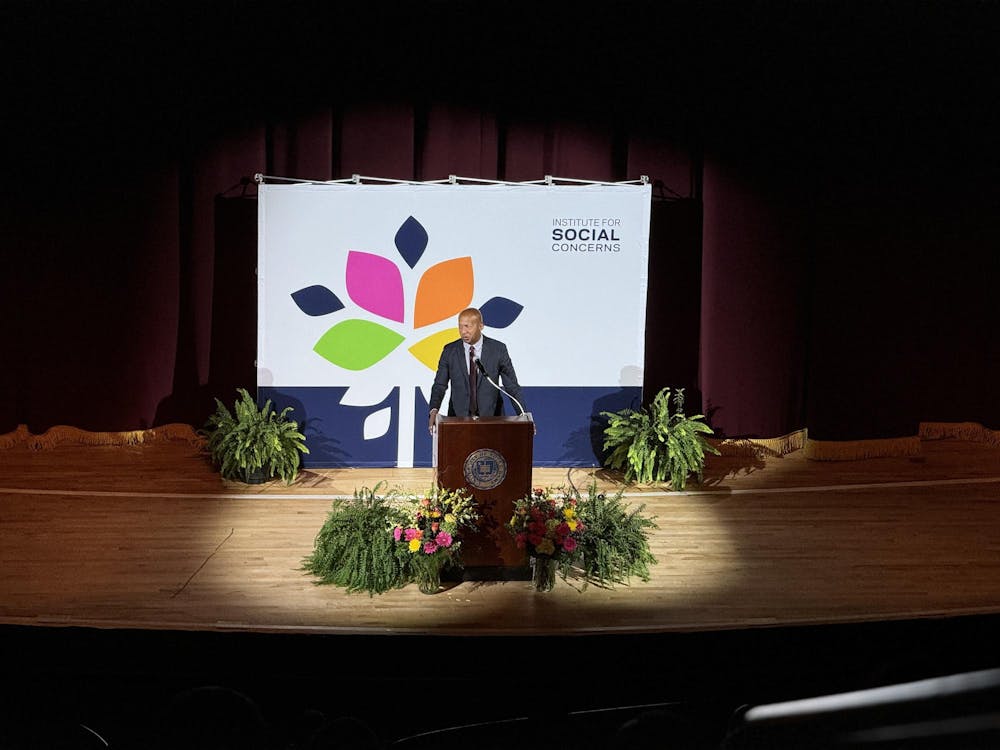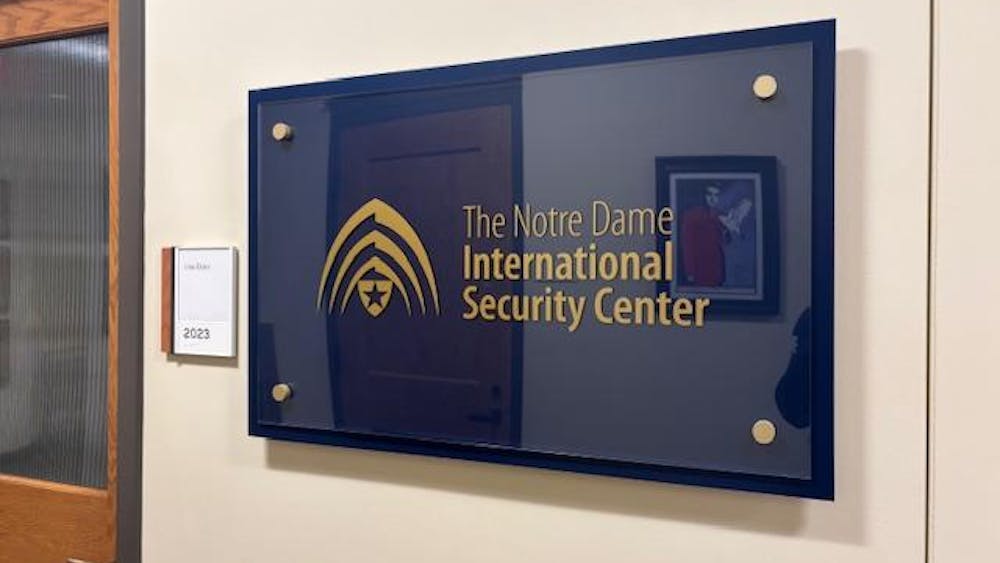On Tuesday, Bryan Stevenson, founder and executive director of the Equal Justice Initiative (EJI), gave a lecture on his life and career as a criminal justice lawyer for prisoners on death row. The lecture was in collaboration with the Institute for Social Concerns and was held in the Morris Performing Arts Center in South Bend.
The annual Rev. Bernie Clark, C.S.C., Lecture was created by the Institute for Social Concerns in 2009 to discuss justice issues and themes related to the common good.
Stevenson opened the discussion with the victories he was able to achieve through the EJI. These included ending certain unjust sentencing practices, exonerating wrongfully convicted death row inmates, addressing mistreatment of prisoners and the mentally ill and supporting children tried as adults.
“The narrative of this inequality has to change — that some children cannot even experience being children. We must lift the justice quotient,” Stevenson said. “This country isn’t free. As a matter of fact, we are burning from justice inequality and racial injustice and that history has created these toxins in the air.”
Stevenson spearheaded new initiatives targeting poverty and discrimination to combat inequality in the U.S. He led the development of EJI’s Legacy Sites, including the Legacy Museum, the National Memorial for Peace and Justice and Freedom Monument Sculpture Park. These landmarks document the history of slavery, lynching and segregation, connecting them to mass incarceration and ongoing racial bias in the judicial system.
“It doesn’t matter where we are — Alabama, New York, New England. We live in a space of long history of social injustice that created these contaminants. This is what prevents us from fully being [in] neighboring and supporting fellowship. All these things are compromised from this bad environment and toxins in the air,” Stevenson said.
He also talked about what prior generations had accomplished for civil rights, from the 1850s to the 1960s.
“I think we have to change this narrative of racial hierarchy [and] social injustice that we have inherited. Our parents and grandparents did what they could, but they didn’t do enough,” he said.
Stevenson continued to stress that there was more to do on the road to racial equality in the justice system, particularly when it came to capital punishment.
“In order to make a change we have to take action. We have to confess on our flaws as a society. Recognizing these flaws will allow us to reach grace and mercy, all the beautiful things in life,” Stevenson said.
According to Stevenson, truth and justice are sequential. He argued for open doors for redemption and repair in society.
“We need to find the courage to change the justice quotient and be hopeful,” he said. “Hopelessness is the enemy for justice. Our hope is our superpower to change the world. We must protect ourselves from the hopelessness, because hope can make us stand up when everyone else is making us sit down.”










